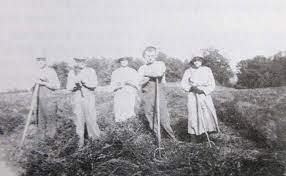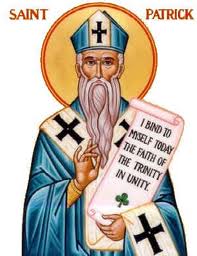Do you know your ethnicity breakdown? Are you afraid to take the DNA test because of what it my uncover in your bloodline? On the popular television show, Finding Your Roots, people are shocked at their family history. Many secrets are uncovered, some to be proud of and some to feel ashamed about. For Black people, there was a time they passed for WHITE.
Between the eighteenth and mid-twentieth centuries, countless African Americans passed as white, leaving behind families and friends, roots and community. To pass as white in the antebellum South was to escape the shackles of slavery. After emancipation, many African Americans came to regard passing as a form of betrayal, a selling of one’s birthright. When the initially hopeful period of Reconstruction proved short-lived, passing became an opportunity to defy Jim Crow and strike out on one’s own. By the dawning of the civil rights era, more and more racially mixed Americans felt the loss of kin and community was too much to bear, that it was time to “pass out” and embrace a black identity.
There are thousands of red-haired people who look forward to celebrating their connection to their ancestral land of Ireland. But, not every person with Irish blood has the glorious mane of red hair nor the luck of the Irish. Prayer of Saint Patrick 
Christ be with me, Christ within me,
Christ behind me, Christ before me,
Christ beside me, Christ to win me,
Christ to comfort and restore me.
Christ beneath me, Christ above me,
Christ in quiet, and in danger,
Christ in hearts of all that love me,
Christ in mouth of friend and stranger.
I don't know much about the festive celebration of Saint Patrick's Day. No more than the lovely color green pops up everywhere and there are a bunch of green stem wares, cups, glasses, and mugs for sale indicating a bit of drink is to be had by many.

When Ireland claimed former President Obama as one of their kin no one was too shocked. After all he was biracial, and his Irish ancestry could easily be linked to his Caucasian mother. Even though people weren't necessarily shocked, it was still a little odd to see a Black Irishman.
Fast forward to the genealogy craze brought about by the affordability of Ancestry.com allowing individuals to discover their ancestral DNA. I jumped on this DNA train because I had been tracing my family's roots for many years. I inevitably hit a wall as most Black Americans do when tracing their family roots. The wall where our ancestors were counted as property and not as named humans. If any records during the early colonization of America are found, Black people would be listed as male or female without a given name.
When my results were finished, I ran to my computer excited to see the breakdown of my ethnicity. I swear, every Black person believe they are full of Native American DNA, and I was no different. My results showed, NO NATIVE AMERICAN DNA WHATSOEVER! It was a little bit of a letdown if I am to be truthful. I don't know why many Black people, including me, want Native American ancestry unless it makes us feel more like a part of America sharing the blood of its native people. To have a more pleasing legitimacy to this land. Hold up! Wait a minute! What's this? IRISH?! Yes. Irish.
How did that happen? Of course, we know White slave owners had sex (raped) Black female slaves, but that DNA usually shows up as European. Where did this Irish I have come from?

During the time of slavery, Irish people immigrated to America. The official British legal terminology used for the Irish was "indentured servants" whether the servants in question had willingly signed the indenture contract to emigrate to the Americas or were forced to go. In any other forms, those transported unwillingly to America were not considered to be indentured. This included political prisoners, vagrants, convicts, prostitutes, or people who had been defined as "undesirable" by the British government. Penal transportation of Irish people to America was at its height during the 17th century. Most relocations were for various felonies such as highway robbery, vagrancy, burglary, and horse theft. Penal transportation was a general practice across all of Great Britain, and not limited to the Irish specifically. These were the offences most often punished with transportation for men in the 1670s, though for women it was theft. They were then subjected to forced labor for a given period when they arrived in the Americas or Australia.
As these Irish indentured servants worked side by side with Black slaves. White landowners saw their labor inferior to the slave. It was said one Black slave was worth ten Irishmen, so it was of no consequence if an Irish man or woman died in the harsh working conditions and disease of rice fields in the South. The female Black slave and female Irish indentured servant outlived their male counterparts. When a female, Irish or Black, was widowed she was paired again with a male whether Irish or Black to ensure the production of more workers for the landowner through having children, hence the Irish ancestry of many Black Americans and vice versa. The indentured Irish servant could be freed after four to nine years of service if they survived. Whether they were free to take their children or the person they were in relationship with along with them was doubtful. Even if the Irish person chose to be free, they were still treated badly by other whites due to once being a criminal and then indentured servant.
I must also add that there were Irish people who immigrated to America in the 18th and 19th centuries who were fleeing caste oppression and a system of landlordism that made the material conditions of the Irish peasant comparable to those of an American slave. The Penal Laws regulated every aspect of Irish life and established Irish Catholics as an oppressed race.
There you have it. The history of the Black Irish American. It did not take a lot of digging to find this information and answer the question of my Irish DNA. The answer to the question as to why the Irish drink so much beer/alcohol is a harder nut to crack and not too many people are even trying to crack it.
So, paint your face green, grab a pint, hug a buddy, and sing an Irish ditty with your colorful friends and relatives. Now for some more info on this green day you may find surprising.
The words "Saint Patrick" can be heard of course, but the little leprechaun is seen about more so than the saint. Many people all of a sudden claim to be Irish or at least date someone Irish to garner full participating in the fun of the celebration. I have eyed the eye-catching tee shirts on sale during this time with varied clever sayings, but believed no one would take me serious in my Irishness. I don't believe many Black people celebrate their Irish ancestry, but do enjoy the drinking. Why do people "drink" on this day? St. Patrick's Day first started to honor Saint Patrick on the anniversary of his death.
The Christian people held a great feast for which Lenten food and alcohol restrictions were temporarily removed, therefore drinking has become synonymous with the holiday. Christians of various traditions, who have voluntarily undertaken the Daniel Fast during the season of Lent, would consume Lenten suppers made from vegetables, fruits, lentils, beans, seeds, and nuts, with meat, lacticinia, and wine being excluded (Daniel 10:3).
Many Black people don't celebrate Saint Patrick's day to events that happened in the past.
In 1834 a mostly Irish mob in Philadelphia rampaged through the Black district. By the time they subsided, two Black people were killed and many beaten. Two churches and upwards of 20 homes were laid waste, their contents looted or destroyed.
Black workers had traditionally been an important part of the waterfront workforce in New York, Philadelphia and other northern cities, as well as Baltimore, Charleston, New Orleans and other Southern ports. In 1850, Irish laborers in New York demanded the dismissal of a black laborer who was working alongside them.
During the strike of 1852 and again in 1855, 1862 and 1863, Irish longshoremen battled Black workers who had been brought in to take their places. The underlying cause of the New York Riot of 1863 misnamed the Draft Riot, was the employment of Black workers on the docks. According to one historian, in Philadelphia, as in New York, "Irish gangs not only drove Blacks out of jobs, they also served as surrogate unions." There, the race riot of 1849 and the longshore strike of 1851 were simply different tactical phases of the same struggle.
In August 1862, a largely Irish mob in Brooklyn attacked the Black employees, chiefly women and children, who were working in a tobacco factory. The mob, having driven the Black employees to the upper stories of the building, then set fire to the first floor. The factory was allowed to reopen only when the employer promised to dismiss the Negroes and hire Irish. This history of the Irish and Black people is relatively unknown so the view of abstaining from the celebration by Black people is not based on these events. They just do not relate to being Irish.
The most distinguishable thing associated with St. Patrick's day besides beer, is the color green. It is not a wimpy shade of green but a healthy robust shade of green and you will get pinched if you are found on this day not wearing anything green.
Originally, the color associated with Saint Patrick was blue. Over the years the color green and its association with Saint Patrick's day grew. Green ribbons and shamrocks were worn in celebration of St Patrick's Day as early as the 17th century. It is said St. Patrick used the shamrock, a three-leaved plant, to explain the Holy Trinity to the pagan Irish. It was an effective prop in getting them to become a Christian.
All of the luck stuff soon became a part of the festivities. There is the luck of the Irish I have heard and had no idea what it meant:
The "luck of the Irish" is
BAD luck, as any reading of Irish history will document. The phrase 'luck of the Irish' was probably used in a sarcastic form when first used. Some trace the origin of the phrase to the U.S. where, during the exploration for gold in the West, there were a high number of Irish people who got lucky, and found their "pot o' gold" in the gold fields of California, or were equally prosperous in silver mining. So, now you have the pot of gold.
Luck of the Irish does owe its origin to the U.S.A.. When they arrived, they were very disliked, treated badly, despised and hated. When the Irish had any kind of success most Americans at the time didn't think the Irish were capable of such successes, so they called it luck. Hence the term "Luck of the Irish".

What does the church think about this once pagan group of people who turned from their pagan ways and embraced Christianity?: Christian leaders in Ireland have expressed concern about the secularization of St Patrick's Day. In
The Word magazine March 2007 issue, Fr. Vincent Twomey wrote, "It is time to reclaim St Patrick's Day as a church festival." He questioned the need for "mindless alcohol-fueled revelry" and concluded that "it is time to bring the piety and the fun together."
So, as people raise their glass to drink and celebrate the greatness of the Irish people, a robust, overcoming minded people, let us remember the
mission of one brave man later to be called Saint Patrick and his desire for the gospel to be spread to a people he came to love.

















This is actually maybe the most fair, even-handed, and thorough explanation of the situation between black and Irish people in the US that I've ever seen.
ReplyDeleteFor years, Irish people have been slandered by leftists seeking to rewrite our history and call our ancestors who couldn't even afford FOOD slave owners or overseers. They can't accept that Irish and black people either willingly paired up or were forced to. They have to find a way to take away the Irish exception to the more typical white settler in the US.